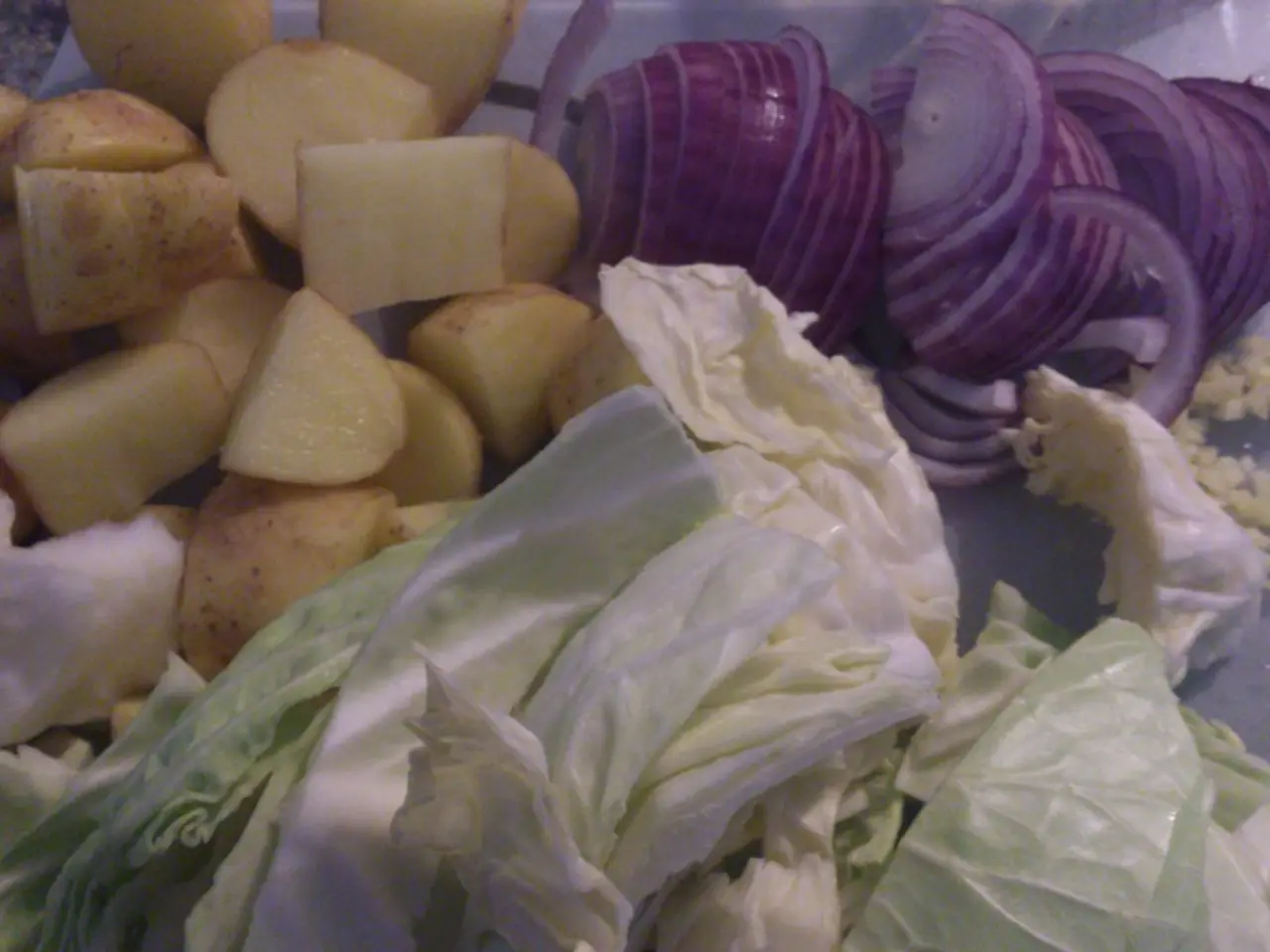Consume this food to significantly lower blood pressure, advocates suggest
In a groundbreaking study, Professor Liffert Vogt and his research team have highlighted the importance of potassium in managing the blood pressure dangers associated with salt. The study followed up with participants for 19.5 years, comparing the blood pressure and risk of cardiovascular events to the sodium and potassium intake of nearly 25,000 participants.
Foods high in potassium can be a powerful ally in lowering blood pressure, particularly for women who consume salty diets. These include a variety of fruits such as bananas, avocados, apricots, kiwifruit, oranges, and dried fruits like raisins and apricots. Vegetables such as spinach, broccoli, potatoes (white and sweet), pumpkins, tomatoes, and silverbeet are also rich in potassium. Legumes like lentils, kidney beans, and cannellini beans, as well as dairy products such as milk and yogurt, also contain significant amounts of this essential mineral.
Potassium works by regulating and lowering blood pressure, counteracting the blood pressure-raising effects of sodium. For instance, spinach is particularly rich in potassium, with about 840 mg per cooked cup, and sweet potatoes contain around 540 mg per medium potato.
Incorporating these potassium-rich foods can help women manage high blood pressure effectively, alongside moderating salt intake. Additionally, drinks such as tomato juice and beet juice are also beneficial due to their potassium content and other blood flow-improving compounds.
The study found that as potassium intake went up, blood pressure went down, particularly in women. For every one gram increase in daily potassium, women benefitted from a 2.4 mmHg lower systolic blood pressure. This relationship between potassium and cardiovascular events was the same regardless of salt intake, suggesting that potassium has other ways of protecting the heart.
Professor Vogt stated that potassium helps preserve heart health, but women benefit more than men. After adjusting for confounding factors, people who consumed the most potassium in their diets had a 13 percent lower risk of cardiovascular events compared to those who got the least.
High salt consumption is associated with elevated blood pressure and a raised risk of heart attacks and strokes. A high sodium diet could also lead to immune system problems and open one to infection. Salt negatively impacts the body's production of nitric oxide, a compound that relaxes and widens the blood vessels. Potassium, on the other hand, helps the body excrete more sodium in the urine.
Foods rich in potassium that should be consumed regularly for heart health include avocados, salmon, potatoes, sweet potatoes, pumpkin, dark leafy greens, and asparagus. These benefits were seen most clearly in women who ate a lot of salt.
For more secrets of long-lived hearts and common misconceptions about popular heart treatments, click for Hushed Up Natural Heart Cures and Common Misconceptions of Popular Heart Treatments!
- Incorporating foods rich in potassium, such as avocados, spinach, sweet potatoes, and tomatoes, along with regular fitness-and-exercise and a balanced nutrition, can significantly contribute to women's heart health and help manage blood pressure effectively.
- The science of heart-and-wellness reveals that potassium, a mineral found in various fruits, vegetables, legumes, and dairy products, plays a crucial role in regulating blood pressure, counteracting the effects of a high-salt diet on women's health.
- By consuming high-potassium foods like kiwifruit, lentils, milk, and dark leafy greens, while also reducing salt intake and maintaining a balanced diet, women can lower their risk of cardiovascular events, contributing to their overall health-and-wellness.




